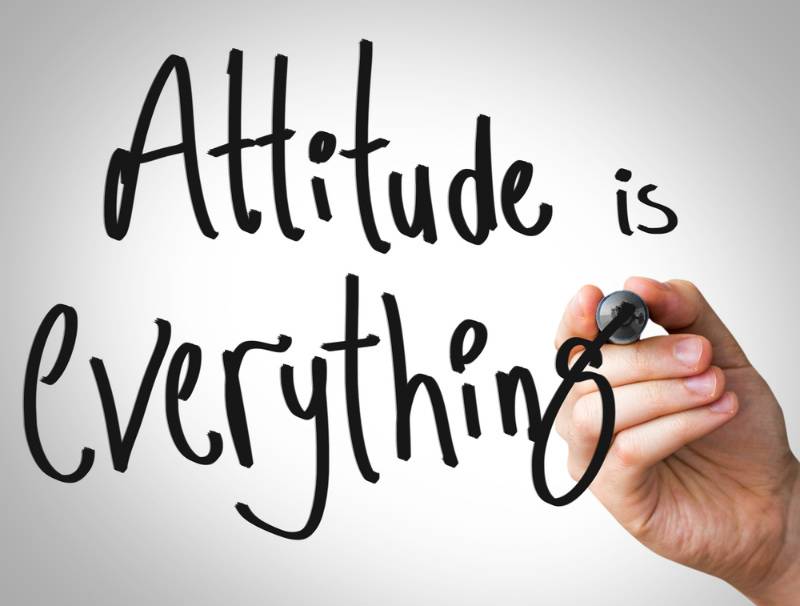Before an interview, most people spend time thinking about what they will say to their potential employers. Ideally, you want to highlight your suitability for the role, talk about your skills, your work history and express enthusiasm. But are there things that you shouldn’t’ say? Nerves have the ability to get the better of us all, and preparation is the best way to ensure that you don’t start talking nonsense when put on the spot! Here are a few suggestions of things that are better off staying in your head rather than vocalised during an interview.
-
“I don’t know.”
If you really don’t know the answer to a question, of course it’s ok to say that you don’t know. The important thing is to not JUST say that. Follow it up with an explanation. For example, “I don’t know, but if I was in that situation I would do x,y or z to figure it out,” or “I don’t know, but I am a fast learner and always keen to increase my skills.”
-
“When Will You Let Me Know If I’ve Got The Job?”
This is a question best left for your recruitment company. The person/s conducting the interview may not be the decision maker. They are there to assess your suitability for the role and might interpret this question as you being too confident or too pushy. It is also not uncommon for there to be a second or third round of interviews before a final decision is made. The best thing you can do at the conclusion of an interview is be polite and say something along the lines of “Thank you for your time,” or “Nice to have met you.”
-
“How Much Is The Salary?”
If the salary hasn’t been advertised, then it will be dependent on the successful candidate’s skills and experience. It’s ok to ask your recruiter what they expect the salary to be, but an interview is your time to sell yourself, not ask about company policies or benefits. Wait until you have a job offer before negotiating specific details of your employment, including your salary.
-
“I’m Nervous.”
It is expected that a job interview will make you nervous. If you’re stumbling over your words, announcing “sorry I’m nervous” can sometimes make you even more nervous! Confidence is key, and remember, most of the time, your nerves are mostly in your head, and other people won’t notice. Try saying “I’m really excited to be here.” This will remind you of the opportunity in front of you and might help you to relax.
-
“What Sort Of Things Will I Be Doing?”
This can be an opportunity killer. Your potential employer will expect you to have researched the company and the advertised role. Read the job description carefully, and if the position is advertised through a recruitment company, your recruitment consultant will know the nature and scope of the role. If you want to ask more about the role in the interview, say something like “I noticed in the job description it says [insert duty here], does this also involve …”
-
“I Hated My Last Job”
Negative comments about a former boss or coworker are a huge no-no! Perhaps one of the worst mistakes you can make during an interview is appearing antagonistic. No matter how unpleasant a previous working situation or relationship was, you should always maintain professionalism when discussing these matters. In an interview, you want to highlight your interpersonal skills and your ability to work well with a variety of people. Speaking ill of former employers may indicate you have a poor attitude, lack communication skills, or are difficult to work with.
-
“HOW MUCH TIME OFF WILL I GET?”
While these are valid concerns, asking too abruptly about benefits or salary is something not to do in an interview, especially in a first interview. You want to avoid sounding as if salary and benefits are your main priorities. Most job descriptions will contain some information regarding salary and benefits, and if not, your interviewer will likely bring it up, perhaps at a follow-up or second-round interview. Wait for the interviewer to broach the subject first. He or she may ask you about your salary requirements, opening up the opportunity for discussion and negotiation.
-
“YOU HAVE BEAUTIFUL HAIR!”
It is a great asset to be friendly. However, compliments to the interviewer which may be perceived as too forward or inappropriate should be avoided. While you want to make a good impression with the interviewer or interview panel, it’s best to stay away from addressing anything too personal. These compliments or comments, while well-intended, may also come off as over-eager or insincere. If you’re looking to pay the interviewer a genuine compliment, it may be a good idea to do a little research about their professional accolades and accomplishments, or about the successes of the company itself. You can mention these in an interview setting to pay a thoughtful compliment, as well as demonstrate that you’ve paid attention in your interview preparation.
-
“I DON’T HAVE ANY QUESTIONS.”
Typically at the close of an interview, the interviewer will invite you to ask any questions you may have about the position or the company. This can trip up a lot of job candidates. In reality, you may feel as though you have all the information you need, and you simply are really keen to be offered the job! It’s always a great idea to mentally prepare a few questions beforehand in preparation for this moment. If you have no questions about the position for which you’re applying, you can direct your questions more broadly to the company as a whole. Asking questions shows you’re interested, possess a curious and intelligent mind, and that you take initiative. Not asking any questions denies you that extra opportunity to shine in your interview process.
If you’re planning on making a career change, or have a position to fill, Online Recruitment in Nowra is here to help. We have over 15 years of experience matching the right person to the right position. Talk to one of our recruitment consultants today.




